Is Phenomenology in France Theology or Philosophy?
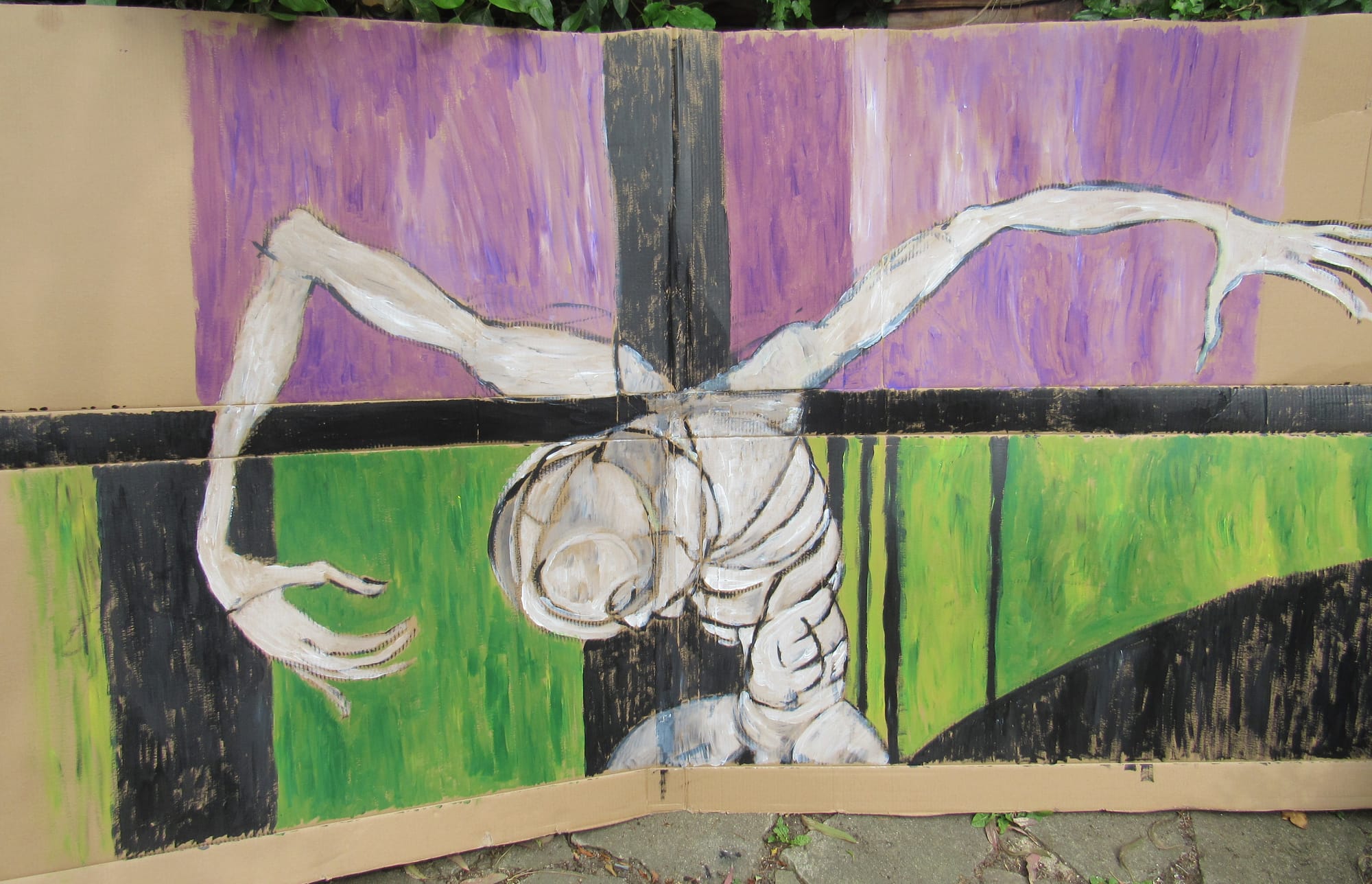
Interview by Richard Marshall

'The dispute between Husserl and Heidegger ... Is phenomenology to be a rigorous science of transcendental subjectivity’s powers of constitution (Husserl), or an inquiry into the meaning of being (Heidegger)? It isn’t just that there are many views, but that they are sometimes incompatible with one another in significant ways.'
'... phenomenology takes root in historical situations of peril where the philosophical spirit is most under attack. As a philosophy committed to making sense of meaning, it uniquely is suited to address moments of crisis when that meaning is put in question. If one of philosophy’s aims is to make rational sense of the human condition, then after the World Wars many in Europe were convinced that life is absurd. Why then, so some thought, bother with philosophy which is running a fool’s errand, looking for sense where no sense is to be made? It is within this bleak contextimmediately before the Second War—that one finds Husserl struggling to articulate his vision of a philosophy capable of responding to what he himself characterizes as a crisis of reason, or meaning. Heidegger later does something similar when criticizing the pernicious aspects of modern technology. And Michel Henry follows suit when his phenomenology of life objects to what he terms the barbarism of contemporary mass society.'
'It is worth noting that the phenomenologists first to challenge naturalism did so without any appeal to religious belief. Husserl’s criticism of psychologism and naturalism, for one, was undertaken expressly in the name of reason. And his resulting conception of truth is rather expansive. What we call the “manifest image” of the world is for Husserl far from illusory. And the other phenomenologists will in that regard follow his lead.'
'Levinas in effect argues that what makes a meaningful encounter with entities as entities possible is not traceable to the capacities of the subject qua transcendental ego; rather, it is the I that is constituted by the encounter with the other. Levinas has reversed things, locating the origin of meaning as consisting outside the subject, and thus beyond the horizons of intentionality.'
'According to Marion, Husserl’s transcendental phenomenology (and Heidegger’s too) is suited only to uncovering a limited area of the total phenomenal field. What transcendental phenomenology identifies as the field of meaningful entities opened through the horizons of intentionality does not delimit the true borders of what can be given. Rather, it accentuates one specific domain of the given—Marion in Reduction and Givenness will say that of the object or the entity. As for the phenomena that do appear strictly in virtue of having violated the conditions of ordinary intentionality, he terms them “saturated phenomena”: the face, the icon, the idol, and the flesh.'
'... as Sartre and Shestov both say correctly) God can become so shallow a term that it straddles the vacuous—think, for example, when everyone stands to sing “God Bless America” during the seventh-inning stretch. What does everyone mean there by God? Whatever they mean, it evidently isn’t very pressing. The game goes on. This way of handling God is idolatrous in that it reduces him to a spectacle or a heuristic—something that in a philosophical context comes to be discarded.'
Steven DeLay is inspired by the tradition of post-Kantian European philosophy, especially existentialism and phenomenology. His writing takes up issues associated with the philosophy of religion, the philosophy of art, moral psychology, and the history of philosophy—currently, it focuses on the question of the self. Particularly, he is interested in what it means to be created in the imago Dei. Here he discusses phenomenology, the dispute between Husserl and Heidegger, the relationship between the French phenomenological tradition and theology, whether French phenomenology is a form of apologetics, phenomenology as a relief from naturalism and the relativism of Weltanschauung philosophy, the importance of Levinas, the Husserl/Heidegger dispute, Levinas and his distinctive 'ethics first' approach, Marion's theology, whether Michael Henry's phenomenology is theology and the God of philosophy and how to approach God in philosophy differently.
3:16: What made you become a philosopher?
Steven DeLay: I was born in 1986. Sega Genesis and Nintendo were around growing up, but because no one yet had cell phones or the Internet, everyone still spent the majority of time playing outside—riding bikes, building tree forts, battling in dirt-clod wars, going to the beach, swimming at the pool, fishing, etc. I played sports too—baseball and basketball. When friends weren’t around or in the evenings, I spent a lot of time reading. I’ve always loved books. I was drawn to military history, historical fiction, and politics. I generally liked my earliest school years: it gave me a strong foundation, and I made some very close friends. But I didn’t like high school. When I got to college, I was anticipating a panacea where everyone would be fascinated by ideas and interested in learning. The first two years proved hard. I was not into partying, and I didn’t have a girlfriend, so I spent a lot of time alone. It was depressing and lonely. At the time I was majoring in political science and statistics. When I took my first philosophy class to fulfill a general education requirement, I knew that I had found what I’d been looking for. It was exhilarating to discover this whole world of texts exploring the questions about life that mattered to me. It was like coming in from the wilderness. Philosophy, I learned, had its many consolations. As I read more of it, I came to love writing it too, because I saw how writing gave me the opportunity to join the conversation.
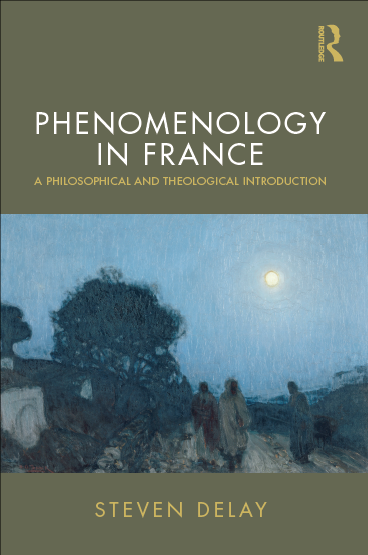
3:16: You’re interested in phenomenology. Before we look in detail at your work, can you sketch for us how you understand that term so that the uninitiated can understand a little of the geography of the idea?
SD: Phenomenology is hard to define! Anything one says on the matter is bound to elicit objections. But trying to answer it isn’t totally fruitless. On the one hand, phenomenology can be seen as a philosophical tradition of historical interest in that regard just like any other, comprising its own body of canonical texts and figures. On the other hand, it can be seen as a distinctive way of philosophizing. It is this second way of looking at it that probably is the more important of the two; it certainly is the aspect most responsible for generating the infighting for which the phenomenologists have become so notorious. As is well known, the question of phenomenology’s method and matter was a cause for contention ever since Husserl’s own students began articulating their competing conceptions of phenomenology. There is something right about Paul Ricœur’s famous remark that the phenomenological movement is a story of heresies whereby each thinker has defined his position by repudiating those of his predecessors. The dispute between Husserl and Heidegger is one good case in point. Is phenomenology to be a rigorous science of transcendental subjectivity’s powers of constitution (Husserl), or an inquiry into the meaning of being (Heidegger)? It isn’t just that there are many views, but that they are sometimes incompatible with one another in significant ways. Nevertheless, there exists enough of a family resemblance to warrant characterizing them as in an important sense being of one accord. Put most generally, I would say phenomenology is a philosophy that attempts to make sense of existence by articulating and explicating the essential and fundamental contours of that experience. It gives words to what encounters us, the quotidian of course, but also the sometimes overlooked and unexpected too. The onus is always on description.
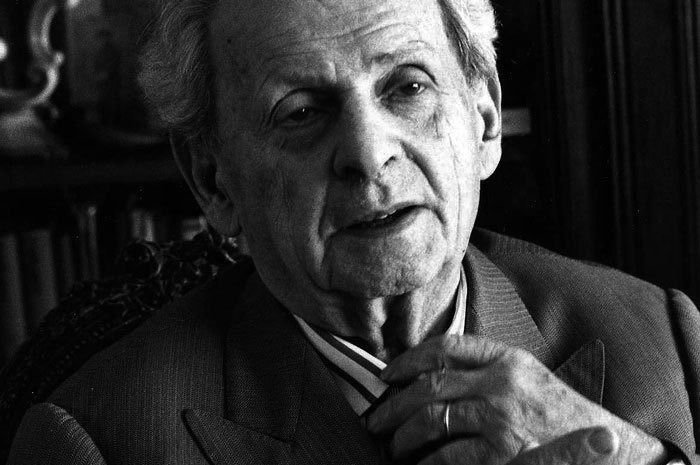
[Levinas]
3:16: You’ve looked in some detail at a particular strand of the phenomenological tradition, the French strand which you say starts when Husserl delivers his four Päriser Vorträge, translated into French by Emmanuel Levinas two years after with the title Méditations cartésiennes. Why is the relationship between phenomenology and theology so important to so many of the French phenomenologists? Why didn’t it and doesn’t it continue the presupposition that it can proceed wholly independent from faith?
SD: It seems to me that often phenomenology takes root in historical situations of peril where the philosophical spirit is most under attack. As a philosophy committed to making sense of meaning, it uniquely is suited to address moments of crisis when that meaning is put in question. If one of philosophy’s aims is to make rational sense of the human condition, then after the World Wars many in Europe were convinced that life is absurd. Why then, so some thought, bother with philosophy which is running a fool’s errand, looking for sense where no sense is to be made? It is within this bleak contextimmediately before the Second War—that one finds Husserl struggling to articulate his vision of a philosophy capable of responding to what he himself characterizes as a crisis of reason, or meaning. Heidegger later does something similar when criticizing the pernicious aspects of modern technology. And Michel Henry follows suit when his phenomenology of life objects to what he terms the barbarism of contemporary mass society. I think it is from within this perspective that the theological concerns of some of those working in today’s French context make eminent sense. Such work is the continuation of the earliest of phenomenological attempts to address questions of basic human concern: Who am I? Is humanity rational? What is the meaning of life? Does history have a purpose? In trying to answer questions as these, it is inevitable that the question of God arises. Thus, when I ask rhetorically in the Introduction to Phenomenology in France whether future work in phenomenology can hope to shed light on the questions of meaning and reason by proceeding independently from faith, I was being deliberately provocative, but not without reasons. For many readers, I do understand, such a question is thought to be answerable with a “yes”: as Dominque Janicaud’s famous formula has put it, “philosophy and theology must make two.” And in many institutional contexts (in the Anglophone world this is especially so with the exceptions of pockets like Fordham and Boston College), Janicaud’s slogan is taken as a truism, and the sentiment behind it has become something of a dogma. But all that seems too quick to me.
Husserl himself, for one, as Emmanuel Housset has noted in Husserl et l’ideé de Dieu, was the one who said that doing phenomenology without any faith would have been a great danger. Why did Husserl think so? One might contend that faith in God grants access to an absolute truth otherwise inaccessible, thereby supplying and justifying an overarching norm of truth capable of orienting inquiry into matters of subsidiary truth, phenomenological investigations of whatever kind thus included. To say so would be to endorse a radical strand of Kierkegaardian inheritance evident in the thought of someone like Henry, for example. But there is also the much less bold observation that faith can be understood otherwise, whether as perceptual faith (Merleau-Ponty) or faith in the world (Husserl). In both cases, it is impossible to neutralize such faith completely. We are credulous beings, which is why Merleau-Ponty says in the famous Preface to the Phenomenology of Perception that a complete phenomenological reduction is impossible. This is not to deny that we can identify some of our common sense presuppositions, subjecting them in turn to scrutiny. Doing so is possible and good, and phenomenology itself encourages it. It is in trying to do so, in fact, that a great paradox of phenomenology makes itself felt. Ultimately, phenomenology takes what appears as the final tribunal of truth, yet phenomenology is needed precisely because we sometimes fail to notice (and sometimes even distort in everyday language and thinking) what appears. As, then, for the idea that we can abandon all commitments or presuppositions of every kind successfully, that is an illusion. As Heidegger always said, the presupposition that there is a way of overcoming all presuppositions is itself a presupposition—a false one. Heidegger’s point needn’t be taken in its immediate context, as a simple criticism of what he saw as Husserl’s latent cartesianism. The question becomes: if faith in some form is unavoidable, what form shall it take? In what shall we put our trust and confidence? What are the presuppositions without which philosophy cannot be? These questions, I think, circle back to the second one. Why is there disagreement over what phenomenology is supposed to be? Part of that dispute, it turns out, concerns the status of reason: its limits and authority. Some, like Husserl, take a very exalted view of reason, maintaining that individual consciousness (and humanity) is teleologically oriented to truth through reason; others have taken a more postmodern approach, viewing that sort of robust rationalism as cause for incredulity. Once again, the question of reason’s role in ordinary and philosophical life is linked to faith. Are the two complementary? Antagonistic? Which of the two takes priority? And these questions originate well before phenomenology. Kant, Schelling, Kierkegaard, and Fichte took them seriously too.
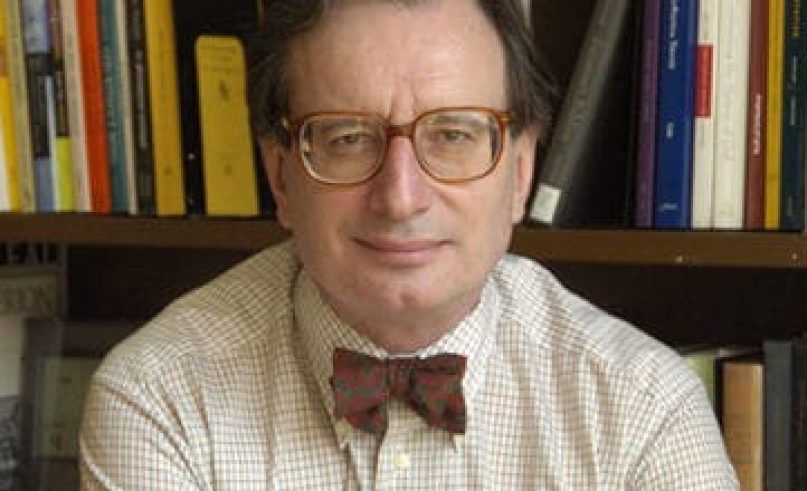
[Jean-Luc Marion]
3:16: Why aren’t you convinced by the arguments for secular methodological approaches, and atheism in this context?
SD: I think there is something very perceptive in Jean-Luc Marion’s response to Jocelyn Benoist. He in effect notes that while one’s saying that one has seen is not sufficient to prove one has seen, neither is one’s saying not to see sufficient proof that there is nothing given to be seen. In my experience, I have often encountered an attitude among those working in phenomenology that is content to go about its work without ever paying the slightest heed as to whether—or how—a revealed God might bear on its investigations. When that’s the case, it isn’t so much that arguments for secular methodological approaches are unconvincing as that no one is even taking the time to bother giving reasons for that approach. Probably, this default methodological atheism has much to do with the fact that many working today take it for granted that methodological atheism has already prevailed a long time ago—due mainly to considerations we owe to Sartre and Heidegger. Those original arguments, however, it seems to me fail. I mention just two for now, both of which are said to originate in Husserl (Sartre and Heidegger we may leave for later). Take the first argument one might try extracting from Husserl’s early period, the locus classicus of which is probably §58 of Ideas I. Admittedly, he says there that the transcendence of God should be bracketed. What does the term transcendence mean here, however? It is premature to assume that Husserl by saying so is endorsing a methodological atheism, as if the epoché and reduction decide transcendental phenomenology henceforth must have nothing to do with God. When Husserl’s work is appreciated as a whole, we know as a matter of fact that this could not be what he meant: in his manuscripts he develops a very sophisticated and extensive account of the relation of God to transcendental phenomenology. Nevertheless, one might try reformulating the original argument. Can the contention that Ideas I endorses a methodological atheism perhaps be rehabilitated by invoking the text’s distinction between the natural and phenomenological attitudes? Whereas in the natural attitude one posits a thing’s existence, in the phenomenological attitude one brackets any such commitment to existence—hence, so the argument concludes, the existence of God must be neutralized along with other entities.
The distinction between the natural and phenomenological attitudes is not as fixed as Husserl himself makes it out to be. And for two reasons. On the one hand, some things in quotidian experience show up in a way that involves no commitment to their existence—even while still in the natural attitude, well before the epoché or reduction, the thing’s existence is irrelevant to the experience. As an example, consider certain kinds of aesthetic experience. The painting or the symphony are the examples Jean-Yves Lacoste analyzes. When listening to Bach, as he notes, I am not concerned with the fact that I am listening to Bach, but simply with what I hear. Listening to Bach in ordinary experience seems, then, to be more akin to what Husserl would classify as the phenomenological attitude than the natural one—I am entirely immersed in the essence of what appears, and not the fact of its appearing, much less that it exists. In short, in such cases an incipient reduction is already at work in everyday perceiving. On the other hand, it also is not so obvious that everything without exception can be bracketed without thereby distorting its appearance. The other person comes to mind, says Lacoste: if I suspend the natural commitment to the other’s very existence and try to describe his mode of appearing, have I not distorted precisely what I am trying to describe? Reducing the phenomenon destroys it. And, second, one might observe the same of God: bracketing God’s existence while trying to describe whatever remains after such a reduction does not give access to what appears (or its mode of phenomenality), but obscures it. Accordingly, there are what Lacoste calls “irreducible phenomena.” An appreciation of them provides another reason for concluding that separating the natural and phenomenological attitudes is not so easy—as he says, such a distinction probably is untenable. Hence, what is needed is a “demythologization of the reduction,” a phenomenology that no longer sees (as Eugene Fink) a radical rupture between the everyday and phenomenological attitudes. If so, then there’s no solid Husserlian basis for bracketing God.
3:16: What’s Marion’s critique of Nietzsche’s famous ‘death of God’ scenario in ‘The Gay Science’? How does it show that the notion of negating God is hopelessly confused?
SL: Under the influence of historians of philosophy indebted to Heidegger’s deconstruction of the history of philosophy, Marion himself beginning in the 1970s developed a criticism of what is known as onto-theology. The details of what onto-theology is, and Marion’s specific contribution to criticizing it, can be set aside. The essential point in this context is that he is keen to emphasize the finitude of human knowing—or rather, the radical limits of our ability to capture experience in the concept adequately. In that respect, he is very Bergsonian. When it comes to the question of God, Marion observes that Nietzsche remains a metaphysical thinker (in the onto-theological sense), for Nietzsche always thinks of God as something that can be conceptualized fully. Or better, if not fully, at least to an extent permitting that what we name God can be negated. In reply, Marion contends that to negate the God Nietzsche has in view—for example, Kant’s “moral God”—is to conflate a conceptual representation with the thing itself. The thing itself—here, God—can never be reduced to a finite concept we are said to have of him, for then God would no longer be God, but something else—a mere definition (and so an idol) we have of him. God is incomprehensible in that finite thinking cannot think God adequately. Marion’s contention, thus, is that when Nietzsche announces the “death of God,” at most he has announced the death of a conceptual idol that any bona fide theology could have done just as well without. Marion’s point, in short, is that the theologian and Nietzsche can agree that this conception of God is best left behind. But that does not entail atheism, says Marion. Rather, it opens up a horizon within which thinking can begin trying to grapple with who an infinite God really is. Marion’s argument is sure to call to mind Anselm’s ontological argument—he has written at least one article on the subject. However, whereas Anselm contends that the concept of God includes the perfection of existence—that is, God’s essence implies his existence, Marion claims that God transcends conceptuality to such an extent that, rather than saying with Anselm that God’s existence is entailed by his essence, we’d do better to say that God’s essence defies the powers of our finite thinking to such an extent that any thought that takes itself to possess a sufficiently clear comprehension of God in order to negate him is not negating what it takes itself to be negating—if God, as Marion will say in God without Being, is beyond any finite definition, any position as Nietzsche’s that negates whatever it has first defined has negated just that—an idol of its own construction.
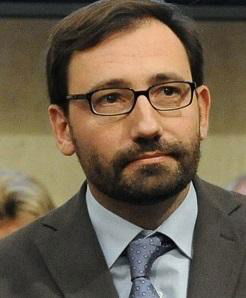
[Claude Romano]
3:16: Is French phenomenology a form of apologetics and theism – even if not of a single religion?
SD: Contrary perhaps to what the debate between Marion and Nietzsche may suggest, the answer is “no.” I would insist that French phenomenology is not an apologetics. That is not to deny it opens a philosophical terrain that can be used as a basecamp for apologetical aims—it certainly does so, and that from my perspective is something to its great credit. Seeing, for example, why Nietzsche’s dismissal of God is superficial has considerable philosophical value. But even if one were for whatever reason inclined to downplay such a result as stemming from a purely apologetic interest, the fact remains that French phenomenology is a very complex and rich tapestry, and so it would be an oversimplification to interpret it only through a theological lens. I will say why so in a moment. First, though, it maybe is worth noting that the very term “French” can be a misleading adjective here—it might be better to speak of phenomenology in France. While the tradition in question is French insofar as it comprises thinkers who live and work in France, the questions and problems it addresses are not peculiar to that context. Phenomenology in France takes up matters originating in Germany with Husserl and Heidegger, and, before that, German Idealism, Neo-Kantianism, hermeneutics, and other periods of the history of philosophy.
Then there is the issue of analytic philosophy. Here, too, the work being done in France is conversant with work in Anglophone philosophy of mind, philosophy of language, philosophy of art, ethics, and metaphysics. To cite just two examples, take Kit Fine’s and Timothy Williamson’s work in modal logic and metaphysics. Both have articulated a very robust role for philosophical inquiry. Contrary to the linguistic turn, they contend that there are truths about the world that are not merely a matter of language. Philosophy investigates things, not words. It investigates how things are, not merely how we speak about them. As I will explain later, work in French phenomenology has long maintained so too—Claude Romano’s criticisms of linguistic idealism spring most to mind. And it’s not surprising that phenomenology would have developed many of the insights that are now beginning to circulate in the analytic tradition. As is well known, Husserl was a mathematician who knew Frege and Cantor. One way of characterizing phenomenology’s metaphilosophical innovation is to highlight how it extends the domain of necessity beyond the formal or conceptual, and into the domain of the experiential. And in any case, even in the instance of the figures who have said the most directly on theological matters (Marion, Henry, Chrétien, Lacoste, and Falque), they have contributed extensively to fundamental matters of philosophical import: art, language, embodiment, perception, intersubjectivity, and so on. Finally, the work in French phenomenology is conscientious of the entire history of philosophy, providing sophisticated and creative readings of Plato, Aristotle, Aquinas, Descartes, Kant, Kierkegaard, Nietzsche, Freud, and others.
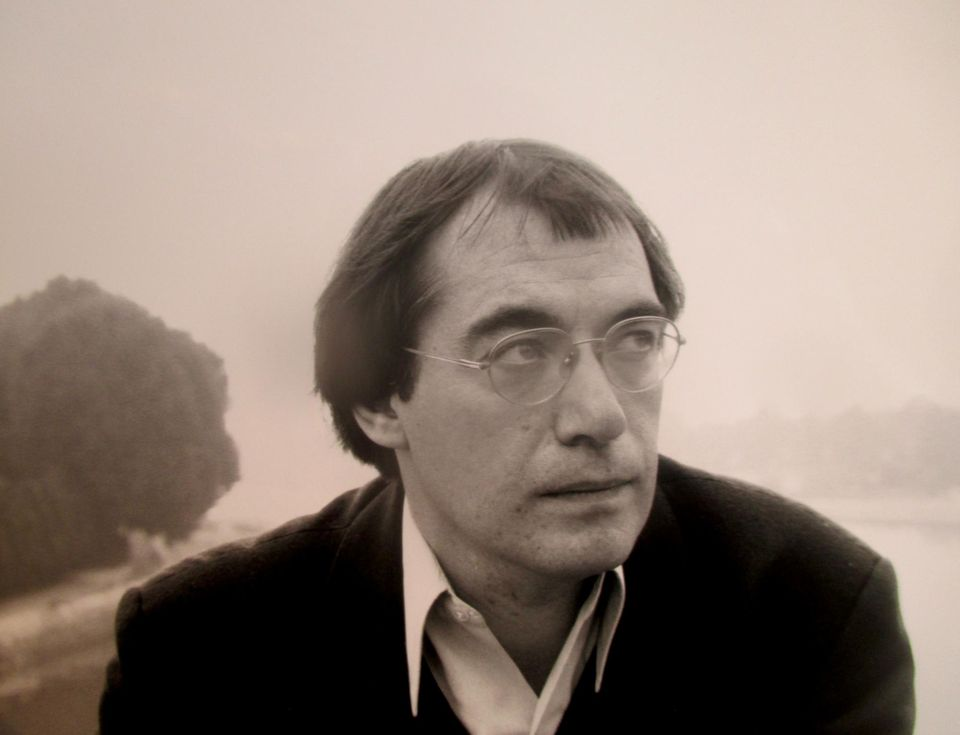
[Jean-Louis Chrétien]
3:16: You see phenomenology as a welcome relief from naturalism on the one hand and the relativism of Weltanschauung philosophy on the other. Can you sketch for us what you take these two positions to claim and why Heidegger and Husserl and Merleau-Ponty and Levinas are good starting points to counter both?
SD: I encountered phenomenology as an atheist and materialist. Like many, I without realizing it was under the spell of a certain scientism so prevalent today—Dawkins, Hitchens, Dennett, the Churchlands, and so on. To discover that naturalism could be challenged philosophically was a great shock to me intellectually. It is worth noting that the phenomenologists first to challenge naturalism did so without any appeal to religious belief. Husserl’s criticism of psychologism and naturalism, for one, was undertaken expressly in the name of reason. And his resulting conception of truth is rather expansive. What we call the “manifest image” of the world is for Husserl far from illusory. And the other phenomenologists will in that regard follow his lead. First, they reject methodological naturalism: not all inquiries must be continuous with those of the natural sciences. Against Locke, philosophy is more than the underlaborer of the sciences. Second, there is a corresponding domain of truth said to be philosophy’s own. As Husserl was to note (and as Romano does also in At the Heart of Reason), phenomenology broadens the Kantian synthetic a priori. Philosophy seeks universal and necessary truths, but they are experiential facts concerning the world of experience. Husserl named this realm of necessity the material a priori, and it is a notion shaping how the other phenomenologists see philosophy’s field of inquiry as well. For instance, when Heidegger explicates the “worldhood” of the world in Being and Time, those analyses are not to be taken as offering an account of merely contingent facts dependent on our psychology or biology or culture; rather, Heidegger describes the essential structures of what a world is as such. So too with Merleau-Ponty, who, in turning his attention to the perceived world, takes himself to be uncovering features about the essence of perception—not empirical generalizations about how things happen to look to organisms who are constituted as we are, but rather eidetic necessities constitutive of how the world must appear. Already present in Husserl, Heidegger, and Merleau-Ponty, we see a view of the human condition that cuts directly against what someone like John McDowell has similarly criticized as a view that sees the world from “sideways-on.” As for Levinas, if anything, he radicalizes this anti-naturalism. If Husserl and MerleauPonty criticize objectivism, naturalism, and reductionism, and if Heidegger criticizes technology, Levinas compounds the criticism, accentuating just how badly philosophy distorts the truth of the human experience when it tries to reduce human beings to objects suited for the kind of conceptualization known to the natural sciences.
As for the matter of Weltanschauung, someone as Heidegger has a very technical sense of what he means by it, and during the 1920s his rejection of it is motivated by a deflationary impulse regarding traditional philosophical metaphysics, a deflationary attitude he sees as necessary in order to reawaken the philosophical question of being. That said, one can understand Weltanschauung in a more colloquial sense. That is the one I have in mind. Here, it simply means one’s most basic background way of understanding what the world as a whole is and what it accordingly means to be who one is. Increasingly today, the prevailing worldview is a toxic cocktail of consumerism, narcissism, and identity politics. It is a worldview that asserts what it believes without argument or evidence, and then silences all dissent—its is a mindset not unlike Calvin’s Geneva, the Inquisitions, or Hitler’s Germany. It seems to me phenomenology offers a very welcome relief. Placing as it does a premium on first-person evidence and intersubjective argument, it defends the spirit of open and free debate. Everyone is entitled to one’s views, but that means one must respect the views of others and engage with them rationally. Anything less is not true philosophy.
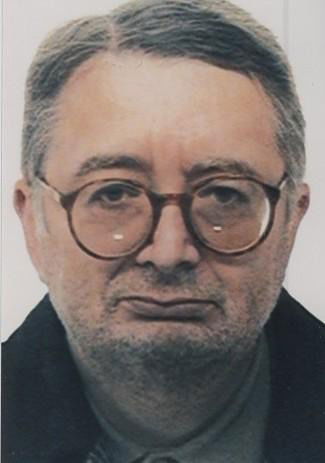
[Jean-Yves Lacoste]
3:16: In the 90’s D Janicaud wrote a pamphlet in which he denounces an improper use of the phenomenological method, quite common among some philosophers – like Levinas, Henry, and Marion – who, in his eyes, apply it in absence of any kind of intuitive content? Can you sketch for us his criticisms and why they are important to understanding your take on phenomenologists in France?
SD: It is understandable that many have seen the dispute between Janicaud and his targets as primarily concerning the methodological issue of phenomenology vis-à-vis theology. A closer look, however, suggests perhaps a deeper layer to the dispute, namely one regarding the horizons of intentionality and thus in turn the very possibility of meaning (Sinn). There is an intriguing way of interpreting Husserl and the early Heidegger as both being engaged in a quasi-Kantian project of what one might call a transcendental critique of meaning. On this way of viewing the matter, Husserl and Heidegger are dubious of traditional metaphysical attempts to totalize reality into some system—think of Leibniz’s monadology, for instance—because the sorts of philosophical claims that such metaphysical systems make must be assessed in terms of first-person evidence, but their claims are not amendable to intuitive evidence. This emphasis on first-person justification is recognizably cartesian—things must be given clearly and distinctly, or else they lack any legitimate basis to be treated as claims to philosophical truth. But there is a kind of radical empiricist strand to this phenomenology, since this cartesian proviso for evidence is interpreted in terms of a confirmation that is to be intuitive, not merely speculative or formal. For his own part, Janicaud takes things even a step further, settling on a view that seems to contend for what is in some ways a deeply positivistic view of phenomenological method; for him, a phenomenological statement has genuine sense only to the extent that its conditions of verification can be given in what he takes to be intuitive insight. Thus, for him, the domain best exhibiting the kind of phenomenological essence he prizes is restricted to sensory perception and categorial intuition.
This is why Janicaud is so critical of Levinas. In Totality and Infinity, Levinas argues that the bounds of meaning—what can be experienced both first-personally and intelligibly—are not determined by the horizons of intentionality as understood by Husserl. In fact, perhaps the key takeaway about “the face” is that it institutes a “counter-intentionality.” Levinas in effect argues that what makes a meaningful encounter with entities as entities possible is not traceable to the capacities of the subject qua transcendental ego; rather, it is the I that is constituted by the encounter with the other. Levinas has reversed things, locating the origin of meaning as consisting outside the subject, and thus beyond the horizons of intentionality. For Janicaud, however, the very notion of a “counter-intentionality” is tantamount to a nonsense. In reputing to discover a domain of meaning lying beyond what is intentionally constituted, Levinas has signaled a nonsense, says Janicaud, for, in violating what is said to lie within the limits of intentionality and the norm of intuitive evidence, the face thereby violates the very terms of what makes sense meaningful. Intentionality for Janicaud is the bedrock explaining how we experience entities, and it cannot be violated without whatever is said to be given deteriorating into speculative (and hence unconfirmable) nonsense. His is thus a very Kantian position, one that insists on the claim that certain conditions determine what can be encountered. Anything said to violate such conditions, thus, will simply not appear.
It is this Kantian commitment that Marion challenges by widening the scope of Levinas’s original contention about the face. According to Marion, Husserl’s transcendental phenomenology (and Heidegger’s too) is suited only to uncovering a limited area of the total phenomenal field. What transcendental phenomenology identifies as the field of meaningful entities opened through the horizons of intentionality does not delimit the true borders of what can be given. Rather, it accentuates one specific domain of the given—Marion in Reduction and Givenness will say that of the object or the entity. As for the phenomena that do appear strictly in virtue of having violated the conditions of ordinary intentionality, he terms them “saturated phenomena”: the event, the icon, the idol, and the flesh. Marion’s phenomenological works such as Reduction and Givenness and Being Given are thus to be understood within the philosophical context of the question of appearing—they are works explicating the limits of intentionality, and what in turn appears beyond those limits. In doing so, Marion aims to show how the given exceeds what can be constituted by a transcendental ego (Husserl) or disclosed by Dasein (Heidegger). In reply to Janicaud, Marion would claim that Janicaud has not defended the philosophical integrity of phenomenology by confining phenomenality to the limits of meaning coextensive with intentionality; rather, such an approach neglects the phenomena that are so meaningful that they remain unaccounted for from within a transcendental framework that arbitrarily limits everything to the intentional object. Henry, however, is perhaps the one most directly at odds with Janicaud. For Henry, there are two modes of phenomenality, what he calls the “truth of the world”—exteriority, transcendence, intentionality. This is the way entities are manifest—at a distance, as the object of intentional consciousness. Yet what are we to say about this consciousness itself of such entities? How does it appear? His phenomenological innovation is to show that such self-consciousness exhibits an entirely different kind of phenomenality. Consciousness—Henry calls it “life”manifests itself differently than what is given to intentionality: not in exteriority, but in a primal auto-affection, a transcendental pathos. It is this mode of immanence that Marion for his own part will identify, following Henry, as “the flesh.” And according to Henry, the closest that the phenomenological tradition came to uncovering the true form of selfmanifestation—the flesh—was in Husserl’s analyses of inner-time consciousness. But even here, as Henry claims in works such as Incarnation or Material Phenomenology, the manifestation at issue is characterized in terms of intentional transcendence. Hence, Husserl’s account of retention and protention fails to account for how the “living present” is even conscious in the first place.
How to summarize? From a Levinasian perspective, Janicaud’s view of intuitive givenness presupposes a commitment to intentionality failing to accommodate that which appears in a “counter-intentionality.” According to Marion, who in this respect radicalizes Levinas, Janicaud thereby fails to free the phenomena so that everything that appears is taken as it appears—what cannot appear according to the horizons of intentionality is mistakenly discarded as inapparent. Artificially confining all appearing to what Marion terms “common” or “poor” phenomena, Janicaud’s positivism accordingly neglects the phenomenality of the saturated phenomena. As for Henry, Janicaud’s view is a stark instance of what, beginning in The Essence of Manifestation, he criticizes as “ontological monism”: the view, as he says, that reduces all appearing to the mode of the world’s phenomenality, equating every mode of givenness to intentionality’s and thereby distorting the mode of manifestation characterizing self-consciousness. While Levinas’s face, Marion’s saturated phenomenon, and Henry’s life all have theological implications, they arise in the first place as legitimate and creative philosophical responses to the longstanding phenomenological question of intentionality.
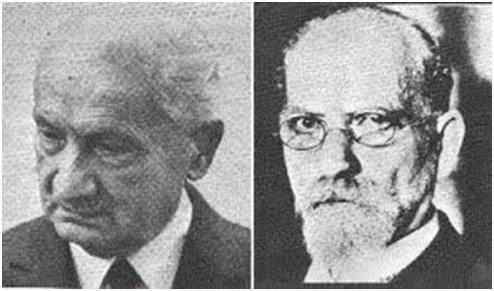
[Heidegger and Husserl]
3:16: Husserl and Heidegger disagreed about what phenomenology was about didn’t they? What did they disagree about and why is it distorting if we try and understand phenomenology as a choice between these two sides and nothing else?
SD: Since their dispute is a particularly vivid instance of the general dispute over what phenomenology is, it too is a complicated one, and so offering any simple answer runs the risk of oversimplifying. Still, it is not impossible to say something useful, even if briefly. Here, considering the reception of phenomenology in the Anglophone world can be useful. In the Anglophone world, there for a long time has been a tendency to see Husserl and Heidegger as far apart. Exceptions to that trend exist, of course, but this is the general rule. This view probably is a sociological and institutional reality mainly, not anything owing strictly to philosophical reasons. It is well known that Hubert Dreyfus brought Heidegger to MIT and then to Berkeley. In doing so, he highlighted what he took to be Heidegger’s novelty and importance by deploying Husserl as the foil, one on which the latter becomes a cartesian representationalist. Influenced in turn also by John Haugeland’s work on Artificial Intelligence and the early Heidegger, Dreyfus’s many students went on to spread that caricature of Husserl.
In time, however, others readers - here I have in mind Steven Crowell most notably—came to challenge this interpretation that had seen nothing but differences between Husserl and Heidegger. Actually, there are considerable overlaps between them notwithstanding their disagreements. And those disagreements themselves become more interesting when the myth that Husserl was a hopelessly solipsistic, rationalistic cartesian are tossed away. So, if we try to reconstruct the Husserl-Heidegger feud without distorting Husserl’s actual position, what are we left with? Husserl says that phenomenology is a rigorous science. Of what? Of transcendental consciousness—in short, of how intentionality constitutes meaning. Heidegger for his part says phenomenology is ontology—inquiry not into particular beings or any domain of beings (a “regional ontology” Husserl would say), but of being (Sein). Lingering further on the issue of intentionality, the question becomes: what makes intentionality itself possible? Heidegger’s early criticism of Husserl—one beginning in the lecture courses leading up to the publication of Being and Time and the delivery of the 1929 “What is Metaphysics?” address—is that because Husserl remains beholden to the prejudices of modern philosophy, he never faces that question squarely. The question of being as Heidegger wishes to understand it never arises for Husserl, he says, because Husserl never properly raises the question of our mode of being. The failure to pose the question of being properly amounts to one of also failing to explain intentionality. The existential analytic, thus, plays a methodological necessity in fundamental ontology—by making explicit the meaning of our existence as Dasein, we lay the basis for formulating in turn the more fundamental question of being as such. In short, the question of intentionality paves the way for the Seinsfrage.
Thus, it is possible to see the entire dispute between Husserl and Heidegger as one internal to transcendental phenomenology—the debate unfolds within a shared commitment taking intentionality as the ultimate horizon for meaning. Thus, I would say that presentations of phenomenology highlighting the Husserl and Heidegger debate have a tendency to be misleading simply to the extent that they omit the important contributions of Levinas, Marion, Henry, and others, who have gone on to question transcendental phenomenology’s restriction of meaning to what lies within the horizons of intentionality. The story of Husserl to Heidegger, while important and interesting, is incomplete.
3:16: Can you take us through the different generations and the key figures in each after Husserl’s lectures at the Sorbonne just so you can highlight the differences between the key figures in this tradition?
SD: I would follow a schema proposed by Emmanuel Falque. There is a first generation who worked primarily under the influence of Husserl (Levinas, Henry, Ricœur, and Marion), a second generation that adopted a more Heideggerian perspective (Chrétien and Lacoste), and a most recent third generation that is indebted to Merleau-Ponty (Romano and Falque himself). The question of influence is not exclusive, of course. For example, Ricœur, Romano, and Marion all have written extensively on Heidegger, Lacoste and Falque on Husserl, and so on. But these divisions, however imperfect, do give a preliminary sense of the general style and focus of their respective approaches.
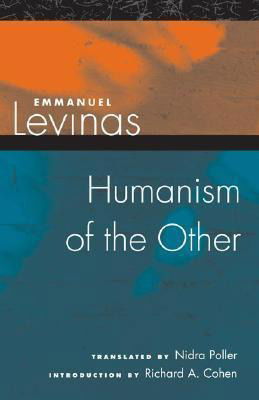
3:16: Levinas puts ethics first rather than ontology, doesn’t he? You say that this flies in the face of both Husserl and Heidegger’s vision for phenomenology? Why isn’t it just another way of developing their insights, and isn’t it the case that Levinas discusses the human face and the human other rather than God, albeit using language familiar in more theological settings? Doesn’t theologising Levinas stretch him too far away from his stated enquiries?
SD: I think there is an ambiguity—or maybe even ambivalence—in Levinas’s thought. How is the face to be understood? Sometimes he will speak of it as though it is an actual empirical face—a concrete other present experientially before us in the flesh. At other times, however, he will say otherwise, emphasizing instead that it is more akin to a transcendental enabling condition not at all to be confused with an empirical other. I would note that, however one chooses to negotiate this tension, there can be no mistaking that he saw his work as a radicalization, but not for that a total disavowal, of Husserl’s and Heidegger’s thought. Here again, the issue seems to return to intentionality and the status of meaning. Levinas can be seen as continuing a line of thought he inherits from them—how is experience of entities as entities possible? At the same time, he broaches that question while challenging the idea that meaning originates in intentionality. For Levinas, it is a “counter-intentionality” ultimately responsible for making meaning possible. It is only insofar as I have experienced myself as addressed in the second-person, as a “you” for the other, that the transition from an environment (Umwelt) to a world (Welt) occurs. Thus, “ethics is first philosophy” because ethics so understood—as an experience of oneself as addressee in the second-person mode of encounter with the other—determines the context in which an intentional relation with entities becomes possible. What Levinas is attempting to describe, in short, is what explains the difference between the experience of a small child, the mentally-handicapped, or the senile, all on the one hand, and a competent rational human being suitably attuned to his surroundings as a normatively-governed space of meaning and reasons. This is one way of interpreting the “face of the other” as continuous with Husserl’s and Heidegger’s own interest in meaning.
But what about the “trace of God”? It will be noted that many have claimed Levinas himself was personally an atheist. As to the question of theology’s role in his thought and that thought’s theological implications, there can be no doubting that very likely his use of theologically-laden terminology is only a heuristic. Or better, he sometimes uses such terminology in a way that evacuates it of its ordinary content in the hopes of explicating what he takes to be some more fundamental structure of experience. This is a strategy that Heidegger also frequently deploys throughout the 1920s when appropriating notions such as finitude, fallenness, death, guilt, conscience, and authenticity for the existential analytic. For Levinas (unlike someone like Kierkegaard), God in no way appears in or through the human other. The face is not a theophany. Nor for that matter does Levinas see a need to “triangulate” human intersubjectivity: whereas for Kierkegaard one’s relation to the other must always be seen as mediated by one’s relation to God, for Levinas our being-with-others is humanistic. Thus, when I state at the end of the Levinas chapter in Phenomenology of France that in the face of the other the eyes of faith see the face of Christ, I don’t mean to be taken as attributing such a view to Levinas himself. That certainly is not what he believed! But Levinas could be wrong, and to note the possibility is simply to register why, having taken his analysis of intersubjectivity to the extremes he did, it makes sense that someone like Marion would later see an opportunity to take such an account in a direction Levinas himself never took it.
3:16: Why do you say that Marion’s approach is theological?
SD: Here I must be careful. There can be no doubting that some of Marion’s work is theological. When it is so, he says it explicitly. I think probably the accusation against his work of covert theology is in many contexts too hasty, however. For one, the distinction between philosophy and theology is not so tidy as Janicaud and others assume. Lacoste has taught us that. And in any case, how does context matter? In works like Reduction and Givenness, Being Given, or In Excess, Marion goes to significant lengths to emphasize why in his view he is not at all doing theology. He says he is interested in measuring the limits of phenomenality and what accordingly can be given—unquestionably, that is a phenomenological undertaking if there is one. In fact, as it happens, he sometimes has been criticized for making too great an effort to differentiate his phenomenological work from his theological work. In trying to do so, Marion insists on a distinction between possibility and actuality—where phenomenology traces the various saturated phenomena (including the saturated phenomenon of Revelation itself) as mere possibilities without ever thereby committing to their actuality, theology presupposes such an existence commitment. Something not unlike Husserl’s own distinction between the natural and phenomenological attitudes seems to be lurking in the background: phenomenology brackets the existence of entities, whereas theology entails no such suspension. To be sure, it is possible to object as to whether Marion’s way of defending his phenomenological work on givenness against the charge of being a covert theology is successful, but from what I have read, very rarely are any arguments given in defense of the accusation. Usually, one simply decries Marion’s work as “theological” without saying anything about what that means, as if having made the charge were itself tantamount to a decisive refutation.
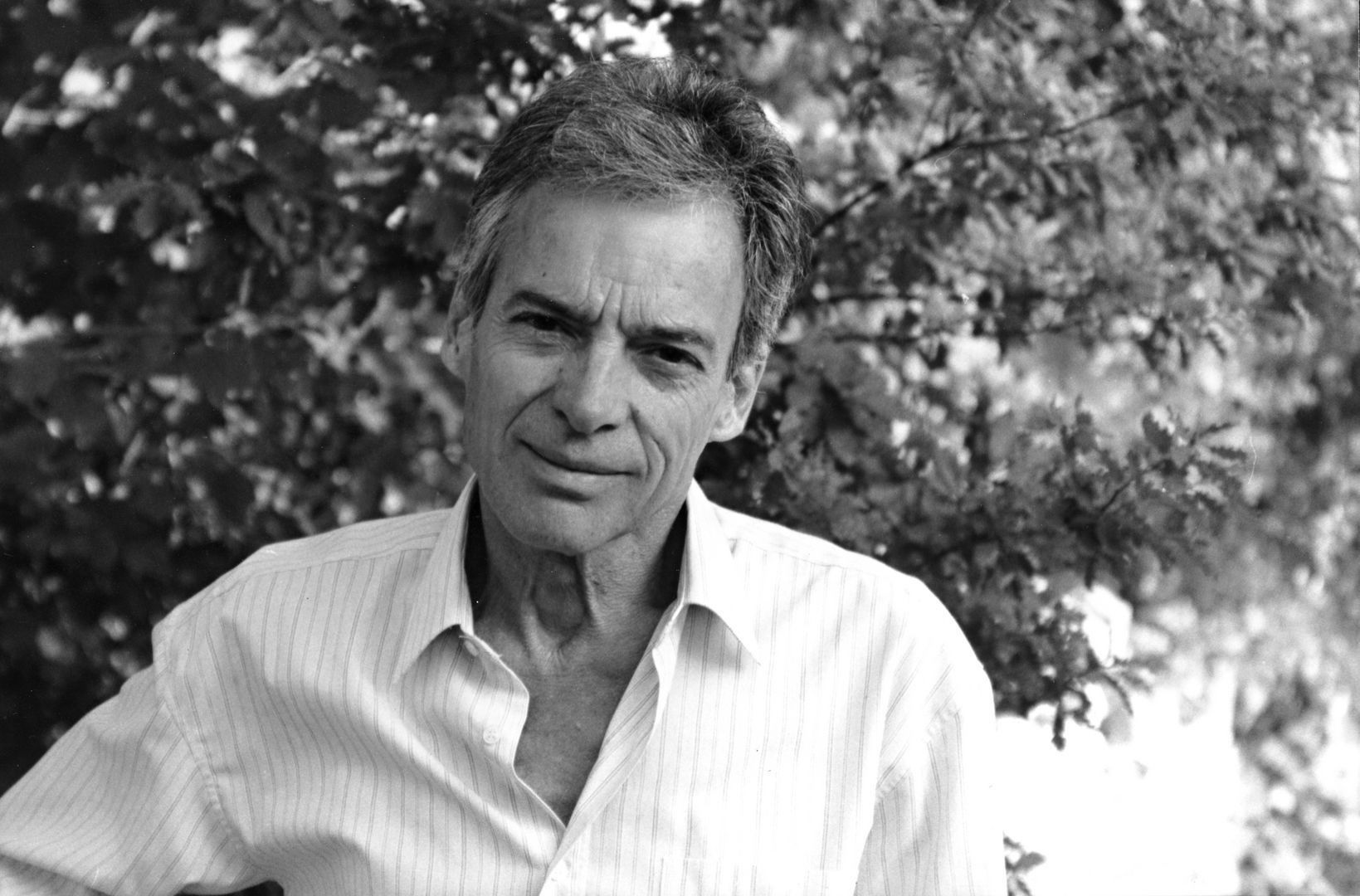
[Michel Henry]
3:16: You take Michel Henry’s phenomenology as theology, but what do you say to those who argue that it is not phenomenology that must be given a dogmatic, theological content, but rather theology that must be appropriated phenomenologically?
SD: First, I would emphasize that much of Henry’s work is not theological in any clear sense. He was an incredibly insightful reader of Husserl and other philosophers (Nietzsche included). But not only is he a fascinating reader of the history of philosophy. Many of his texts are interested in general questions as self-consciousness, intersubjectivity, art, psychoanalysis, technology, media, and much else. Where the matter of theology does arise—to whatever extent it does, for Henry doesn’t use the term often at all—it is only when Henry himself explicitly insists that what he takes to be the fundamental mode of self-manifestation—“life” we have said—must itself be understood in terms of God. As he says, one is brought into possession of one’s own powers exactly to the extent that one has been brought into life through Christ. Thus, one might claim that what traditionally had been considered a matter for philosophical anthropology in Henry instead takes a theological turn. To characterize it is as a turn, however, presupposes the correctness of the secularist view according to which God is not always already manifest in some regard in natural experience. One of Henry’s contributions to phenomenology is to question that supposition, for, according to him, each of is originally a son of God before he ever is an ego or Dasein in the world.
What would it mean, then, to say that we should appropriate theology phenomenologically? I am not sure. Either the claims that people have in view when they use the term theology to characterize them can be manifest first-personally, or they cannot. If they are, it seems they are amendable to phenomenological explication after all, in which case dismissing them as unfounded metaphysical constructions bereft of intuitive evidence is a charge left without any basis—in a word, so much for Janicaud’s criticism. On the other hand, if one instead insists that such claims remain without any such intuitive support, it seems that they can’t be appropriated phenomenologically, in which case any supposed distinction between a phenomenology with dogmatic content grafted on it, on the one hand, and a theology phenomenologically appropriated, on the other, becomes a difference that makes no difference. This is why it is Jean-Yves Lacoste, and not Henry, who probably has done best to clarify these matters. As he has argued in Experience and the Absolute, From Theology to Theological Thinking, and The Appearing of God, it is implausible to believe we are able to draw any principled distinction between philosophy and theology—even Janicaud never really does. What matters instead, as Lacoste notes, is thinking. And it is far from obvious how the obsession with labels is conducive to that.
3:16: Existentialists such as Sartre, Shestov, and Kierkegaard object to critical philosophy’s gambit of using God to serve moral and cultural goals even as it denies God’s actual existence but you criticise them for not being able to say anything about how God can be given experientially. Is this the salient background to your approach to phenomenology and if so isn’t your philosophy really theology after all, of the sort that Heidegger would have said is impossible because theology already has its answers about Being?
SD: My answer will have to be a very long one. Sorry! I made this claim in the first paper I published, “God and Givenness: towards a phenomenology of mysticism.” At the time, I had only just encountered Marion, and I was still unaware of the work of Henry, Lacoste, and others. In many ways what I was doing was very raw and exploratory. For one thing, I certainly retract the statement that Kierkegaard didn’t say anything about how God can be given experientially. I regret saying so, because it now seems to me so obvious that he had a great deal to say on that matter. In retrospect, I think the claim I was struggling to articulate is that (as Sartre and Shestov both say correctly) God can become so shallow a term that it straddles the vacuous—think, for example, when everyone stands to sing “God Bless America” during the seventh-inning stretch. What does everyone mean there by God? Whatever they mean, it evidently isn’t very pressing. The game goes on. This way of handling God is idolatrous in that it reduces him to a spectacle or a heuristic—something that in a philosophical context comes to be discarded. I think realizing that fact is what led me deeper into phenomenology—I felt phenomenology could provide a way of explicating our existence in its singularity while doing so in light of its universal structures and truths. There is conceptual rigor without existential superficiality, a balance between reflection and life as it must be lived. It is in working out the dynamic between these two—between philosophical reflection and existence—that it has come to seem to me that our most basic mode of existence is not limited to being-in-the-world only, but to being-before-God.
Saying what I have said raises alarm bells in the mind of Heideggerians. The allusion to Heidegger’s view of authentic questioning is thus very much to the point. I think there are at least a couple of things to be said in reply to Heidegger. First, his methodological atheism is supposed to be only that—methodological. When taken at its word, phenomenological ontology makes no express commitment either way on God’s existence. But I think it’s clear that Heidegger’s methodological atheism ends up being more than that. For one, take the notion of finitude as he understands it, which attempts to purge itself of any transcendent frame of reference beyond itself. Such an effort is dubious. One might follow Descartes or Levinas, noting how infinity is prior to finitude, not just formally, but also experientially. The idea that the key concepts of Being and Time’s existential analytic can be stripped successfully of their ontic theological content is a dream. Further, supposing that finitude is radically immanent and therefore closed off to God (Francoise Dastur or François Raffoul), it does not follow that such finitude cannot be transformed radically so as to open a horizon beyond the time that leads to death. This is the strategy preferred by Lacoste’s “liturgical” reduction as articulated in works like Experience and the Absolute that subvert the Heideggerian notion of beingin-the-world. And, of course, there also is Emmanuel Falque’s triptych—The Guide to Gethsemane, The Metamorphosis of Finitude, and The Wedding Feast of the Lamb that make a similar move.
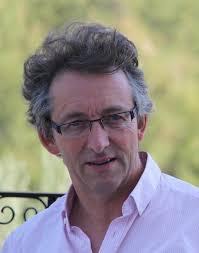
[Emmanuel Falque]
Second, it is with works like Lacoste’s and Falque’s in mind that Heidegger’s own characterization of theology is seen to be dubious. On March 9, 1927 he delivered the famous essay “Phenomenology and Theology,” which, in keeping with that same year’s Being and Time, conceives philosophy as a science. But, as that text notes, philosophy is not a science like others. There are ontic sciences, notes Heidegger, sciences of beings responsible for investigating a given region of entities. In his terminology of the time, these are “positive sciences.” Philosophy for its own part is a science too, but it remains nevertheless quite different. Rather than investigating beings, it is the science of being: “It is evident from the idea of science as such—insofar as it is understood as a possibility of Dasein—that there are two basic possibilities of science: sciences of beings, of whatever is, or ontic sciences; and the science of being, the ontological science, philosophy.”
What kind of science is theology? Heidegger answers that theology thematizes the historical form of Christian faith as a style of lived existence. For him, theology is indeed a science, the science of faith! And as he hastens to emphasize, philosophy now is methodologically atheistic, because, as an inquiry into the meaning of being, it does not occupy itself with any region of beings or any particular being, including even God himself. Philosophy does not deny God’s existence. It is just that God is orthogonal to the business of philosophy. It might be conceded that ontic sciences exhibit all the distinguishing characteristics he attributes to them. It might even be further conceded that, so defined, theology is one among these sciences of beings. And, finally, we might go further still, granting that, so defined, philosophy is not a science of beings, but the science of being. Does this entail that God is prohibited from entering philosophy? There are reasons for denying it. First, to locate philosophy within the horizon of scientificity is to downplay that, going back to Socrates, philosophy was never primarily a quest for scientific knowledge. Rather, it was a task concerning how to live the good life—what Kierkegaard would call “subjective” knowledge, not “objective” knowledge. As the ancients understood, philosophy is a way of life. And that means it involves, arguably, what Heidegger in the name of scientificity wanted to eliminate from it. It is not just that Heidegger swerves away from a venerable view of philosophy, but that, in doing so, the resulting notion of philosophy ends up contradicting its own stated aspirations. In the interest of removing any metaphysical vestige of worldview from philosophy as phenomenological ontology, Heidegger ends up succumbing to a distinctly modern one, namely the worldview according to which we are able to extricate ourselves from such metaphysical presuppositions. Contrary to its explicit intent, philosophy as a science of being is deeply metaphysical in the very way the same worldview philosophies it criticizes are.
There is another reason pertaining to the status of thinking in philosophy. A more virulent atheism is at work in his conception of philosophy, and it becomes apparent when considering what is supposed to distinguish its mode of thinking from other modes. If for Heidegger philosophy is “the free questioning of purely self-reliant Dasein,” this characterization of human existence is itself dubious from the perspective of faith. To be sure, Heidegger claims that faith cannot seriously enter into philosophical questioning, because the one who lives by faith takes oneself already to have an answer to the question “Why something rather than nothing?”—hence, whoever has interpreted life through the lens of faith cannot face up to the anxiety of existence. But that very anxiety, as stated repeatedly in Being and Time, is said to be the consequence of Dasein’s fundamentally unsettled mode of being-in-the-world. This conceals within itself more than it admits. To say that Dasein is anxious fundamentally is another way of saying that there is no ultimate answer to the question of who we are. But to say that is not at all to bracket the question of God, but to reject the idea that we are made in the image of God. There is nothing neutral about the decision, which is why it is of no small significance to stress that it is a decision. In a word, the supposed methodological atheism of phenomenological ontology is not so metaphysically innocent as Heidegger makes it out to be. As it emerges in the context of the analysis of anxiety, the existential analytic takes a stance decidedly against God. In seeing anxiety as the fundamental mood of human existence, it may do so only because, having interpreted that existence as inherently enigmatic, it rejects the Christian view of ourselves as beings-before-God. It is not unfair to suspect that, contrary to whatever he may say, for Heidegger, the existential analytic’s disavowal of man as made in the imago Dei drives his methodological aspirations for a philosophy as the science of being, not the other way around.
This observation leads to a further remark concerning the reputed autonomy of philosophical inquiry presently at issue. What is praised as philosophy’s self-reliance, as its capacity to question for questioning’s sake, takes that questioning to be sensible because it assumes there are no answers of the kind that would make such questioning otiose. But once again as before, that is to take a metaphysical stand, since it is to commit oneself, however tacitly, to a view of man’s relation to reality. Man is thought to be without essence, without end, and without any measure except the one he gives to himself as the result of wrestling with the enigma of his existence by questioning. Such a view is not so innocent. It rests on a commitment, which, if mistaken, leads whomever follows it badly astray. We can agree with Heidegger that it would be a mistake to short-circuit questioning where questioning is still necessary. This happens when, presuming ourselves to possess answers to questions we do not, we call inquiry to a premature close. But to claim questioning must be kept ever open is effectively to commit oneself to the idea that there are no answers. It is easy to see the danger. If there are answers, it would be a terrible mistake to go on questioning as if there are not. For Heidegger, that there is no ultimate answer to the meaning of existence takes on the status of something like a dogma. Faith is the enemy of philosophy, he claims, after all, precisely because it is said to misdirect us from interrogating the insoluble enigma of being Dasein, lulling us instead into a false security by which we come to believe naively that we have answers to matters we do not. It is a story we have heard many times.
However, it is just as possible to see things differently. According to this other way of apparising the situation, the existential analytic is foolish or even stubborn, for it persists in asking some questions only because it refuses to recognize that there are answers. As the 1927 essay attests, Heidegger never seems to recognize that it is possible to ask amiss in two ways: either because we cease questioning authentically when we should have continued on (it is this that worries him), but also just as potentially because we may continue questioning when there is no longer any need to. Thus, when Heidegger claims that the Christian cannot enter authentic philosophical questioning, it is only because he assumes that there is no ultimate answer to the question of who we are or what the meaning of human life is. Whether he is correct about that can be debated, but what cannot be debated is that such a view is quite clearly anything but methodologically neutral. While in principle one can take the stance Heidegger does, doing so should be argued for rather than simply presupposed. And the trouble is that too often Heidegger (but more so his readers) never argue for it. In a twist of irony, the statements that “God is dead” and “philosophy and theology make two” become a bit of idle talk—nothing more.
3:16: And finally, for the curious readers here at 3:16, are there five books that you could recommend that will take us further into your philosophical world?
SD: 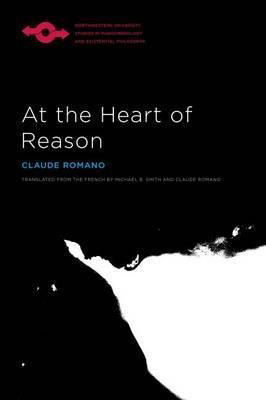
Claude Romano, At the Heart of Reason. There is a perception that phenomenology can safely be ignored by those working in the analytic tradition. I cannot think of a single work that does better to correct that misunderstanding—articulating a robust image of reason liberated from any idealistic or cartesian residue, on the one hand, and from naturalistic reductionism, on the other, Romano’s text takes up, among others, Frege, Wittgenstein, Schlick, Quine, Davidson, McDowell, Russell, Sellars, and Tugenhadt.

Jean-Louis Chrétien, Symbolique du corps: La tradition chrétienne du Cantique des Cantiques. In this work, one sees Chrétien already powerfully exploring many of the themes that figure prominently in later works such as Fragilité and Spacious Joy. Incredible philosopher, incomparable writer, and a man beloved by so many for his integrity, humility, and compassion—he will be missed.
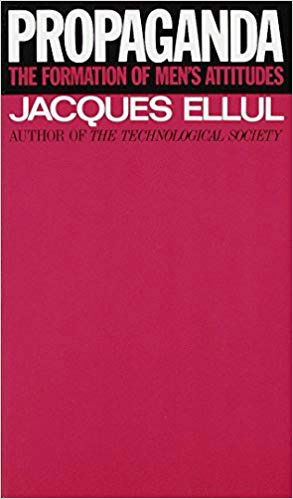
Jacques Ellul, Propaganda: The Formation of Men’s Attitudes. Published in 1962, Ellul’s text has aged quite well: as timely as ever.
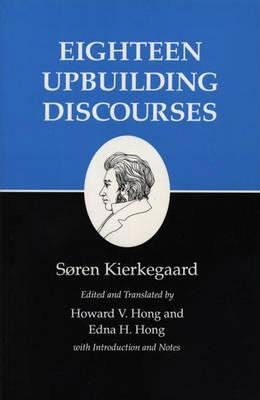
Søren Kierkegaard, Eighteen Upbuilding Discourses. Heidegger once said somewhere correctly, I think—that Kierkegaard’s most profound material is to be found, not in the pseudonymous and theoretical works, but in the edifying ones.

Michel Henry, Barbarism. A powerful philosophical statement identifying the causes of mass society’s despair.
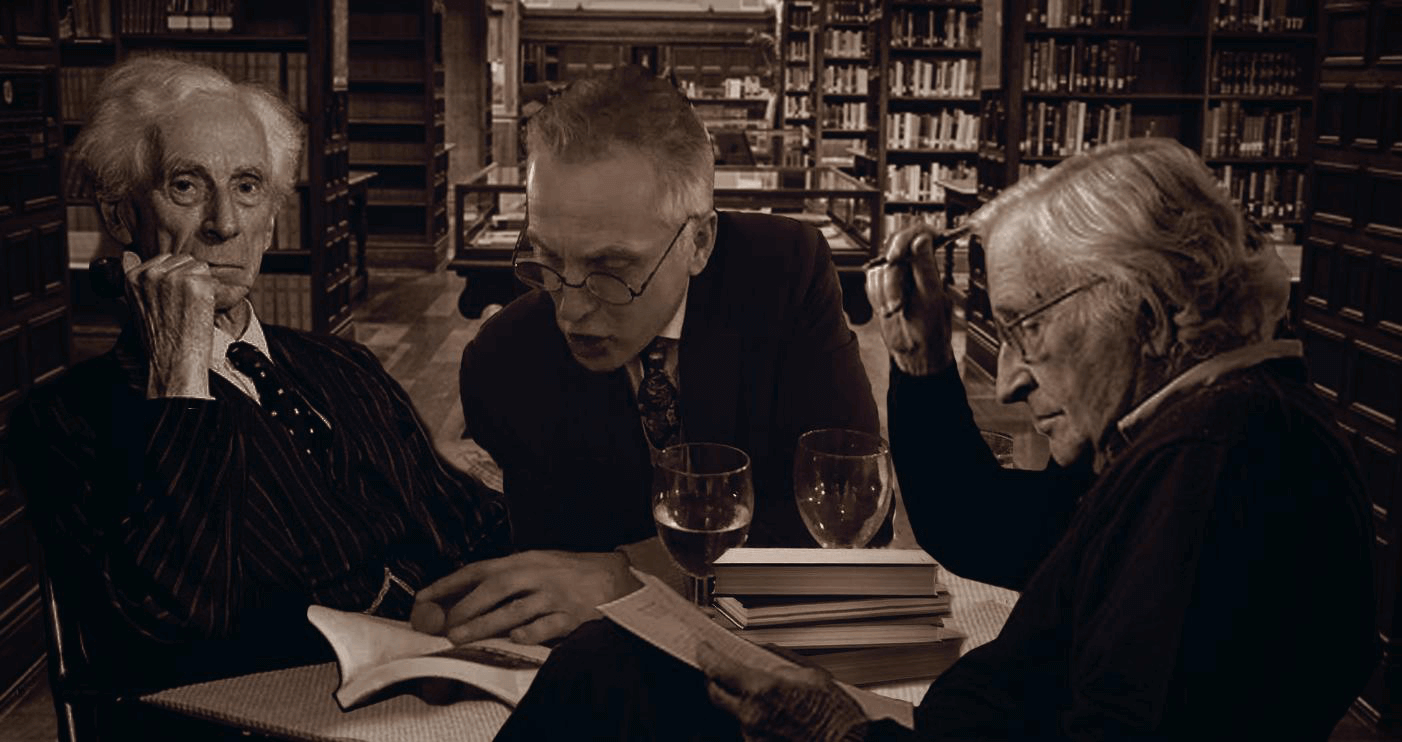
ABOUT THE INTERVIEWER
Richard Marshall is biding his time.
Buy his new book here or his first book here to keep him biding!
End Times Series: the index of interviewees